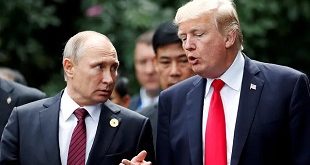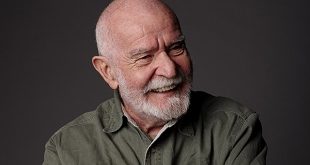
By Kavuma-Kaggwa
As Kabaka Mutebi marks 22nd year on the Buganda kingdom throne, we reflect on what his father taught him
As thousands of people converged on the Lake Victoria island of Ssese on July 31 to join Buganda Kingdom to mark the 22nd anniversary of the coronation of Kabaka Ronald Muwenda Mutebi II, I decided to ponder a bit on his legacy so far. I remembered the jubilation and drumming at the time of Kabaka Mutebi’s coronation in 1993. The height of the ceremony at Naggalabi, Buddo village in Busiro County was when, following Ganda tradition and culture, the new Kabaka after being crowned did not walk. Instead, he was carried shoulder-high by a special man called “omukongozi” who belongs to the Mbogo (buffalo) clan. The Omukongozi carries the new Kabaka showing him to the people. Again not every member of the Mbogo clan can do that, there is a chosen section (esiga) in the Mbogo clan where such people are chosen from.
According to the Baganda customs, the coronation of a prince who has been chosen by the Bataka (elders) of the Buganda clans and the Buganda Lukiiko, is very symbolic and it is carried out at Naggalabi where there is a permanent house called “Buganda”.
Like in Japan where the Prince who is to be crowned emperor spends a week in a hut alone “to communicate with God”, a Buganda Prince who will be crowned Kabaka spends ten days in the house called “Buganda” communicating with God and doing other cultural activities.
After that, on the morning of the coronation, Omutaka Semanobe takes him to the coronation area where he sits on the Buganda throne and the coronation ceremony takes place.
A Bishop of the Church of Uganda places the crown on his head, and abataka (elders) dress him with a leopard skin and several kiganda bark clothes specially made and designed for the coronation.
Many centuries ago, for a prince to be crowned a Kabaka, he had to emerge victorious in a war of spears with other princes. Today, because of Christianity, modernity, and civilisation, the young prince re-enacts that war by spearing a white cow.
Thinking about all that reminded me of two stories the late renowned politician, Abubaker Kakyama Mayanja told me. The first story was in 1986, when we had just come back from exile in Kenya, and were reviewing the political situation in Uganda since Independence. While talking about the tragedy that befell Kabaka Mutesa and Buganda because of the late former president of Uganda, Apollo Milton Obote, Abu Mayanja narrated how he, and the late former Acholi politician, Daudi Ochieng who represented the Kabaka Yekka party in the immediate post-independent parliament, took Obote to meet the kabaka. Mayanja said that it was sometime before independence. He and Daudi Ocheng took Obote to Kabaka Mutesa at Bamunanika Palace in Bulemezi as Obote was seeking political support from the Kabaka. Mayanja narrated that when they arrived before the Kabaka, Obote immediately knelt in front of Mutesa to greet him.
Mayanja said Obote then went on to request the Kabaka to make him the Prime Minster of Uganda at the time of Independence.
“Later on you can decide to drop me and appoint a Muganda as the Prime Minister,” Obote reportedly said.
In return, Kabaka Mutesa reportedly told Obote that it was not within his power to make him prime minister. “That will be up to the people of Uganda to vote and elect a Prime Minister,” he reportedly told him. As they say, the rest is history.
Mutesa and Obote formed an alliance that ensured that, upon independence in 1962, Mutesa became the executive president and Obote the prime minister.
Obote, as a political wizard, used all kinds of means to penetrate into the Buganda Society. He abandoned his first wife Mirieri, who was an extremely beautiful woman in Lango, if not the whole of Uganda at that time, and he married a Muganda from Kawempe, Miria Kalule.
The second story Abu Mayanja told me was from the hot debate about Buganda kingdom’s demand for Federalism and President Yoweri Museveni’s offer of the `Regional Tier’ as an alternative in 2005. It is said that Kabaka Mutebi almost accepted Museveni’s offer, however, Abu Mayanja who was one of his advisors, cautioned the Kabaka not to.
Mayanja reportedly told him: “Your father, Sir. Edward Mutesa fought for the kingdom and it was only the gun which took it away from his hands, but the Baganda fought a bitter five-year war and they restored the kingdom. Sabasajja, if you accept Regional Tier that will mean that you have given away your Kingdom”. The Regional Tier died a natural death.
Those two stories bring out two images of the 36th king that have emerged very clearly over the last 12 years. The first one is that unlike his father, the late Sir Edward Frederick Mutesa II, the current monarch has given public involvement in politics a wide birth. The second observation is that he has curved out a niche as a “modern king’.
Kabaka Mutebi, from the start, showed that he was firmly determined to restore a Kingdom which was completely dilapidated and its people thrown into abject poverty during the 27 years when there was no kingdom.
His chosen biggest task and challenge was to work out solid plans and strategies to rebuild the kingdom and restore it to the past glory which made it famous all over the world.
One year after his coronation, the Kabaka formed Buganda cultural and Development Foundation (BUCADEF). Under this NGO, the Kabaka mobilises his subjects to ensure their food security, improve community water sources, hygiene and sanitation, and engage in agriculture, especially for women. Under BUCADEF, people in Buganda access micro-credit, carry out land reforms, improve feeder roads, build model homes, and fight diseases like HIV/AIDS.
Later, the kingdom set up the Buganda Investments and Commercial Undertakings Ltd (BICUL). This is a holding company that the kingdom employs to get involved in business. Under it are kingdom business ventures like Namulondo Investments (real estate), CBS (radio), K2 telecoms, and Majestic Brands. It is most gratifying that as Buganda marked 22 years of Kabaka Mutebi’s rein, BICUL was inaugurating one of its major projects; the development of Mirembe Villas on its 257 acres of land in the Kigo peninsula of Lake Victoria near Entebbe. This project, located near the five-star Victoria Serena Hotel and golf course, is designated for high-end residences. The Kabaka has set up commercial buildings, including the Muganzirwazza Mall at Kibuye in Kampala and the Masengere at Mengo, adjacent to the Bulange seat of power. People call him the “modern” King of Buganda because of the way he has transformed the Kingdom to create solid economic empowerment and development for the people. This is not only for Baganda but even people of other tribes and nationalities who live and work in Buganda.
Buganda is like the United States of America which has people from all over the World. The king is also called Kabaka of Buganda (embracing all people who live in Buganda) but not Kabaka of Baganda.
People also call him the “modern” King of Buganda because of approach to issues. This could be partly because of the external exposure he acquired during the years he lived in London as a student before and after his father died November 1969 in London.
Kabaka Mutebi immediately also showed that he would be a moderniser when it was reported that he had refused to participate in an old custom of “secretly speaking” to a young virgin girl of the Fumbe Clan before he officially marries in the church at Namirembe. It was part of many rituals practiced long before the advent of Christianity which exemplify the Baganda belief then that “God spoke to them through their Kabaka”.
The Kabaka has also pleased people both in Buganda and outside Buganda because of the way he has applied “quiet diplomacy”and built a good relationship between his Kingdom and the Central Government and President Museveni. In 2009, when serious riots erupted in Buganda for three days when Baganda got annoyed because the central government had blocked the Kabaka’s visit to his Bugerere County, they were calmed when the Kabaka told the people that he would handle the matter in a different way.
The same thing happened when, in March 2010, a fire razed the burial grounds of Buganda kings at Kasubi, which is a UNSECO heritage site.
 The Independent Uganda: You get the Truth we Pay the Price
The Independent Uganda: You get the Truth we Pay the Price



